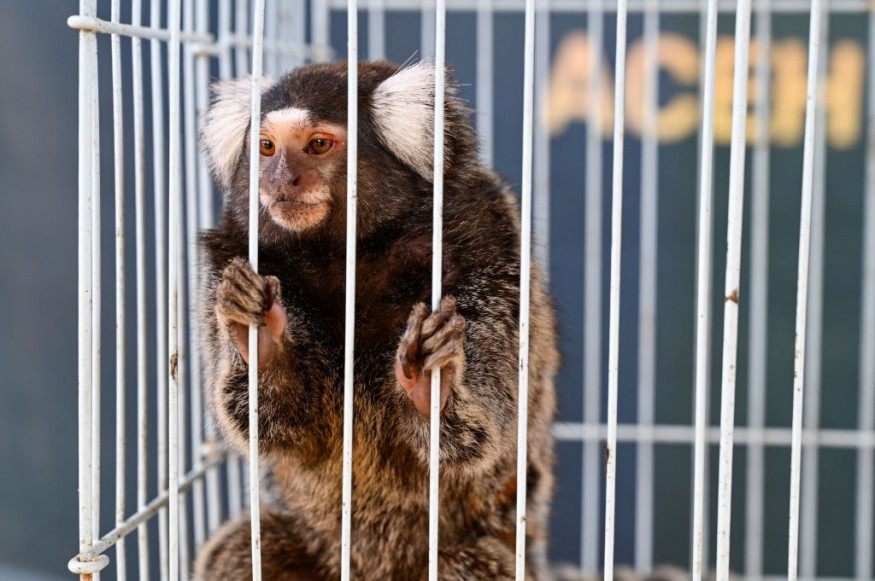In England, there are close to 2,500 "dangerous wild creatures" held by private collectors. Tigers, alligators, poisonous snakes, and dangerous spiders are among the creatures maintained, according to a survey.

Horrifying Data
A review of municipal licensing records revealed that approximately 2,500 "harmgful wild creatures" are kept by private collectors in England, including mountain lions, alligators, and zebras, according to The Guardian.
Collectors All Over the UK
On the list are venomous snakes in Bolsover, grey wolves in West Berkshire, honey badgers in Cornwall, and Bactrian camels in Sedgemoor.
According to the assessment, the Buckinghamshire council area has the most dangerous wild creatures in the country, including ostriches, lemurs, capuchin monkeys, and blackbuck antelope.
At Heythrop Zoological Gardens, an unlicensed zoo owned by former circus trainer Jim Clubb, who rents out animals including trained hippos, tigers, and zebras for TV shows, films, and private parties, 200 exotic animals were permitted by West Oxfordshire District Council, which placed second overall.
With 165 hazardous wild animals recorded, Cornwall placed in third place. Many of these species are the property of the collector and naturalist Todd Dalton, who leads the Feral-Wild Animal Project. This collection includes two sun bears and a wide range of big cats.
Private owners in Cornwall have 14 distinct exotic feline species, including cheetahs, mountain lions, and snow leopards.
The northeastern region of Bodmin Moor has been the focus of reports of large cats roaming free in Cornwall for many years.
Stories about the "Beast of Bodmin" have been mocked by skeptics, who claimed that the harsh environment and scarcity of food would make it impossible to maintain a breeding population on the moors.
But a privately managed big cat population might offer a believable justification for such occurrences.
32 complaints regarding large cat sightings were made to police departments around the nation in 2021, and Devon and Cornwall's police reported seeing a lynx in Helston last year.
With 105 of the North American monsters roaming the plains of Melton Mowbray in Leicestershire, 47 at Bush Farm in Warminster, Wiltshire, and another 40 at a ranch in Durham, England also boasts a large number of bison ranches where the animals are raised for meat.
South Gloucestershire, Hampshire, Hertfordshire, Lincolnshire, North Yorkshire, and West Oxfordshire are the counties where alligators are registered to owners.
Six king cobras, which can kill an elephant with a single bite and are native to South Asian rainforests, are registered to owners in Bolsover, Dacorum, Dover, Hertsmere, Stroud, and West Northamptonshire.
The Mozambique spitting cobra, which is registered to owners in Dover and Thanet and must be handled with eyewear to prevent its flying cocktail of toxins from causing blindness, is one of many types of venom-spraying snakes that may poison people from a distance of up to 3 meters.
Another common pet is the camel, which is a two-humped species native to the steppes of central Asia and is also known for spitting.
According to the survey, camels are kept as pets in six council areas: Melton, North Hertfordshire, North Northamptonshire, Sedgemoor, Staffordshire Moorlands, and West Oxfordshire.
Call for Stricter Measures
"I think most people would be horrified to find that so many dangerous wild animals, including big cats, alligators, and venomous snakes, are being kept by private persons across the UK today," said Chris Lewis of the Born Free Foundation.
The law governing the keeping of dangerous wild animals is about 50 years old, contradictory to other animal laws, and does not guarantee the care of animals kept under license.
Related Article : How To Properly Take Care of Exotic Pets
For more news update about the latest animal trends, don't forget to follow Nature World News
© 2026 NatureWorldNews.com All rights reserved. Do not reproduce without permission.





